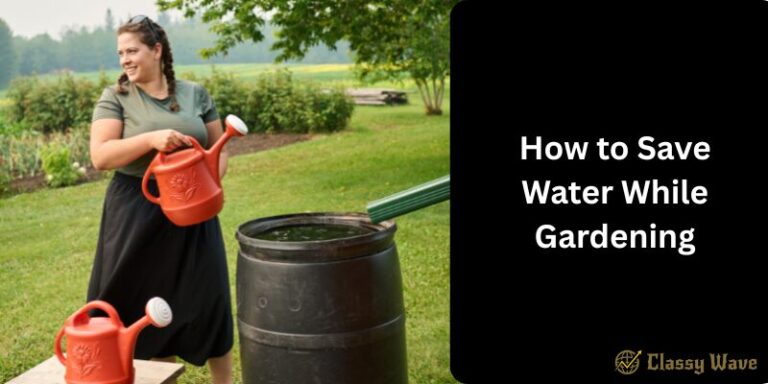Does vinegar keep chipmunks away? Effective and Natural
Embarking on the quest to deter chipmunks with vinegar unveils a landscape of facts, myths, and practical strategies. From exploring the scientific nuances to crafting DIY vinegar repellents and considering alternative methods, this guide navigates the complex realm of chipmunk control, offering insights for effective and eco-friendly solutions.
Vinegar as Chipmunk Repellent
Explore whether vinegar effectively repels chipmunks. Assess anecdotal claims and scientific evidence to determine if vinegar is a viable solution for deterring these garden-dwelling rodents.
DIY Vinegar Repellents for Garden Chipmunk Control
Discover practical do-it-yourself methods for creating vinegar-based chipmunk repellents. Explore recipes and application techniques to implement an affordable and eco-friendly approach to managing chipmunk presence in your garden.
How Vinegar Affects Chipmunks
Delve into the scientific mechanisms underlying vinegar’s impact on chipmunks. Understand how the smell or taste of vinegar may influence chipmunk behavior and whether this knowledge supports effective chipmunk control.
Applying Vinegar to Deter Chipmunks
Learn the best practices for applying vinegar to deter chipmunks. From concentration ratios to application methods, explore effective ways to use vinegar as a natural and non-toxic chipmunk repellent in your outdoor spaces.
Natural Chipmunk Deterrents Beyond Vinegar
Explore alternative natural methods for deterring chipmunks in addition to vinegar. Discover a range of options, from plant choices to environmental modifications, that complement or surpass the effectiveness of vinegar-based solutions for chipmunk control.
Risks of Using Vinegar for Chipmunk Control
Evaluate potential risks and drawbacks associated with using vinegar as a chipmunk repellent. Consider factors such as environmental impact, unintended consequences, and the limitations of vinegar in achieving long-term chipmunk control.
Expert Views: Wildlife Specialists on Vinegar
Gain insights from wildlife specialists regarding the effectiveness of vinegar in chipmunk control. Understand the perspectives of experts in the field and whether vinegar aligns with recommended practices for managing chipmunk populations in residential and garden settings.
Vinegar-Soaked Materials for Chipmunk Repellency
Explore a creative approach to chipmunk repellency using vinegar-soaked materials. Discover how incorporating vinegar into various items or materials may offer an innovative way to deter chipmunks and protect specific areas in your garden.
Misconceptions About Vinegar and Chipmunk Control
Address common misconceptions surrounding the use of vinegar for chipmunk control. Clarify any myths or misunderstandings to ensure accurate information when considering vinegar as a potential repellent for managing chipmunk activity.
Vinegar in a Comprehensive Chipmunk Management Plan
Integrate vinegar into a comprehensive chipmunk management plan. Explore how vinegar-based solutions fit into an overall strategy for deterring chipmunks, considering multiple approaches to achieve effective and sustainable control in various outdoor settings.
Vinegar vs. Chipmunks
Investigate the effectiveness of vinegar as a chipmunk repellent. Differentiate between factual evidence and myths surrounding vinegar’s impact on chipmunk behavior to make informed decisions about its use in pest control.
DIY Vinegar Repellents for Chipmunk-Free Gardens
Empower yourself with do-it-yourself vinegar-based solutions for a chipmunk-free garden. Explore practical recipes and application methods, ensuring an eco-friendly and affordable approach to managing chipmunks in your outdoor space.
Science of Vinegar
Delve into the scientific aspects of how vinegar influences chipmunk behavior. Understand the mechanisms behind its potential effectiveness and explore whether the science supports vinegar as a viable chipmunk deterrent.
Vinegar Application Tips for Successful Chipmunk Control
Master the art of applying vinegar for successful chipmunk control. Learn concentration ratios, application techniques, and best practices to optimize the use of vinegar as a natural and non-toxic repellent in outdoor areas.
Beyond Vinegar
Expand your knowledge beyond vinegar and explore additional natural alternatives for deterring chipmunks. Discover a range of options, including plant choices and environmental modifications, to complement or surpass the effectiveness of vinegar-based solutions.
Conclusion
In conclusion, navigating the relationship between vinegar and chipmunks requires a nuanced understanding of both facts and myths. Whether embracing DIY vinegar solutions, exploring the science behind its impact, or considering alternative methods, a well-informed approach is essential. Balancing the benefits and drawbacks ensures that vinegar, when integrated thoughtfully, becomes a valuable component in your comprehensive strategy for chipmunk control, fostering a harmonious coexistence between your outdoor spaces and these curious garden visitors.
FAQs
Question: Can I use any type of vinegar to repel chipmunks, or is a specific type more effective?
Answer: Generally, any vinegar type can be effective; apple cider vinegar is a popular choice for its strong scent.
Question: How frequently should I apply vinegar to keep chipmunks away from my garden?
Answer: Apply vinegar every 2-3 weeks or after rainfall for consistent chipmunk deterrent effects.
Question: Are there situations where using vinegar for chipmunk control may be less effective?
Answer: Heavy rain or strong odors in the environment can reduce vinegar’s effectiveness as a chipmunk repellent.
Question: Can I combine vinegar with other natural methods for a more robust chipmunk control strategy?
Answer: Yes, integrating vinegar with plant choices and environmental modifications enhances overall chipmunk deterrence.
Question: Is vinegar safe for plants, and will it harm beneficial insects in my garden?
Answer: Vinegar is generally safe for plants; however, use it judiciously to minimize potential impact on beneficial insects.







